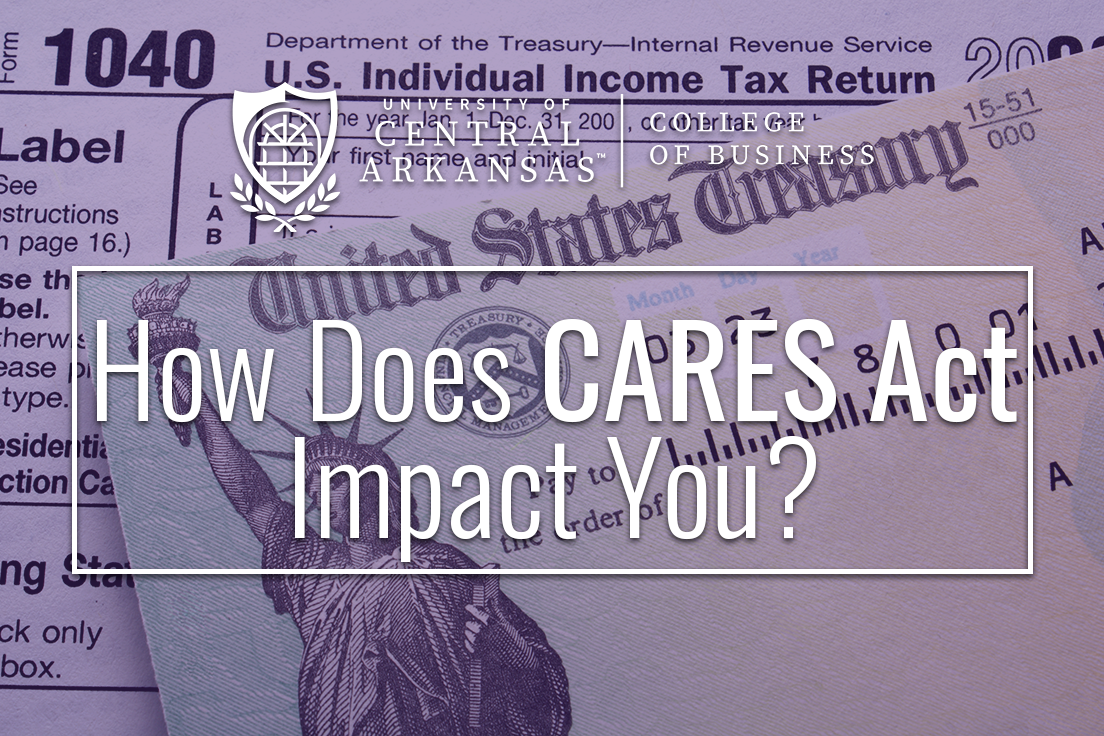
By Ashley Phillips, Ph.D.
The Coronavirus Aid, Relief, and Economic Security (CARES) Act addresses the economic impact of the COVID-19. The CARES Act provides tax relief to individuals through direct cash payments. Here’s how it could help you.
Who will receive the direct cash payments and in what amounts?

Ashley Phillips, Ph.D.
The direct cash payment will be $1,200 for each adult, $2,400 for a married couple filing jointly and $500 per child age 16 and younger.
Single individuals with adjusted gross income (AGI) over $75,000 will have their checks reduced by $5 for every $100 over the amount of $75,000, and married couples who file joint returns will have their checks reduced by $5 for every $100 over the amount of $150,000. Individuals who file as head of household will have their checks reduced by $5 for every $100 over the amount of $112,500. The payments phase out at $99,000 for individuals, $198,000 for married couples, and $136,500 for heads of household.
Most payments will be based on the taxpayer AGI as reported on a 2019 federal income tax return if it has already been filed. If the 2019 federal income tax return has not yet been filed, then AGI will be based on the 2018 federal income tax return. If a retiree did not file a tax return in 2018 or 2019 due to their only source of income being Social Security benefits, the payments will be based on any Social Security benefits statement. For individuals who do not receive Social Security benefits and who do not typically file taxes because they do not have a filing obligation, they will need to file a tax return to receive a stimulus check. Individuals in this situation may take advantage of the IRS free file program. Details may be found here.
Is anyone ineligible to receive direct cash payments and in what amounts?
Parents will not receive a $500 payment for dependent children ages 17 or 18. Furthermore, college students and adults who can be claimed as a dependent will not receive a payment. Moreover, individuals must have a Social Security number to receive direct cash payment.
Is the payment taxable income and will the payment amount be reduced if back taxes are owed?
The payments will not be considered taxable income. The payment will not be reduced if you owe back federal or state income taxes. However, the payment may be reduced if an individual owes back child support.
When will the payments be made?
Treasury Secretary Steven Mnuchin stated that individuals can expect a direct deposit into their bank accounts within 3 weeks. If the IRS does not have an individual’s bank account information, then a check will be mailed and there will likely be a delay.
Ashley Phillips is an Assistant Professor of Accounting at the University of Central Arkansas College of Business.
